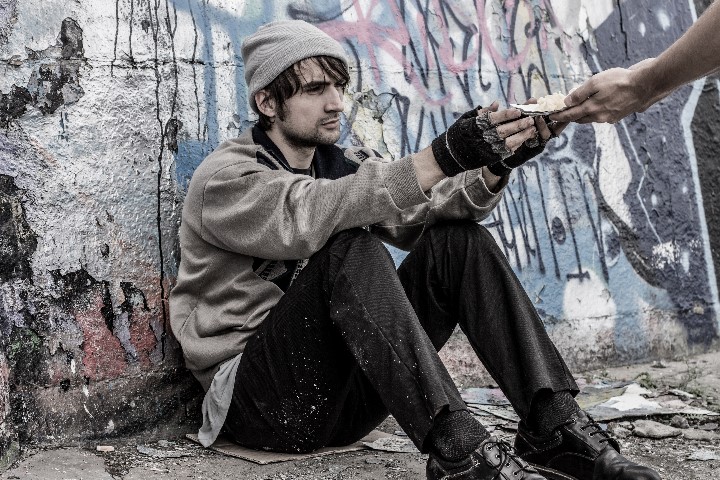Marlon Miller Jr. is a Georgia sixth-grader on a mission, and he recently launched a nonprofit to take it to the next level.


Marlon Miller Jr. is a Georgia sixth-grader on a mission, and he recently launched a nonprofit to take it to the next level.
Miller first learned about severe poverty when he watched his father give food to a homeless man six years ago, an experience that sparked a passion in the young boy that hasn’t waned since.
“We answered his questions and explained to him why some people live on the streets,” Miller’s mother, Tawanda Miller, told the Henry Herald.
It wasn’t enough.
For years Miller constantly pleaded for money for snacks and toiletry supplies to pass out to the homeless, but his mother couldn’t keep up with the demands. “I told him he needed to find a way to raise money on his own to purchase items,” she said. So that’s exactly what he did.
Miller, now in sixth grade at Union Grove Middle School, launched his own nonprofit last year called Deuce Hands, and he has held his first fundraiser – an ugly Christmas sweater party – in December. He also posted fliers at local businesses to solicit donations, and set up social media accounts for Deuce Hands to get the word out online.
“I knew he was serious when he came home with a list of homeless shelters,” his mother Tawamda said.
The 11-year-old uses the money raised to buy toothpaste, a toothbrush, soap, deodorant, water and snacks that he packages in what he calls “compassion bags.” Miller also employs his six-year-old sister Madison to help hand out the bags and volunteering at two events for the homeless each month, according to the Herald.
“I feel I’m lucky to be where I am,” he said, adding that he’s learned valuable lessons from the folks he’s met on the streets. “Homeless people really need help.”
This heartening story shows the influence of a father, the importance in finding one’s passion, and applying it to practical action. It is not an isolated story in urban public schools today. Researchers at the Institute for Advanced Studies in Culture found that effective urban public schools emphasized for critical moral ideas: 1. self-actualization, 2. grit, 3. respect, and 4. compassion. They state, “The moral framework and language for each of these tended to be a combination of solidarity for teachers and individual self-expression for students.”[1]
“We shouldn’t judge the homeless because they are usually good people who ended up in a bad situation,” Miller said.
Teachers and principals interested in strengthening moral formation in their students will find strategies and resources at the UK’s Jubilee Centre.
[1] Hunter, James Davison and Ryan S. Olson. The Content of Their Character (Finstock & Tew Publishers, 2018), p. 28.